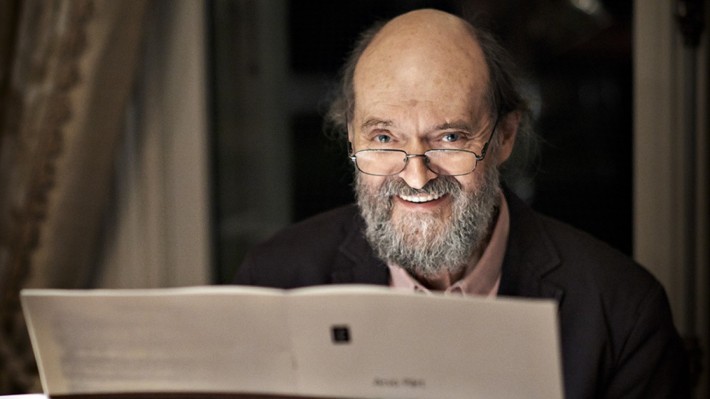Arvo Pärt, born on September 11, 1935, in Paide, Estonia, is renowned as one of the most significant composers of the late 20th and early 21st centuries. His musical journey is a fascinating exploration of faith, minimalism, and the power of simplicity.
Pärt's early years were marked by a deep immersion in music. He began studying composition at the Tallinn Music Secondary School and later at the Tallinn Conservatory, where he was exposed to a wide range of musical styles, from Gregorian chant to modernist experimentation. However, it was his encounter with the music of Johann Sebastian Bach and the Russian Orthodox Church that would profoundly shape his artistic vision.
Arvo Pärt - Fur Alina
Arvo Pärt (11 September 1935) is an Estonian composer of classical and religious music. Since the late 1970s, Pärt has worked in a minimalist style that employs his self-invented compositional technique, tintinnabuli. Pärt's music is in part inspired by Gregorian chant. His most performed works include Fratres (1977), Spiegel im Spiegel (1978), and Für Alina (1976). From 2011 to 2018, Pärt was the most performed living composer in the world, then the second most performed. The Arvo Pärt Centre, in Laulasmaa, was opened to the public in 2018.
For more:
http://www.melhoresmusicasclassicas.blogspot.com
Arvo Pärt - Variations for the Healing of Arinushka
Arvo Pärt (born 11 September 1935) is an Estonian composer of classical and religious music. Since the late 1970s, Pärt has worked in a minimalist style that employs his self-invented compositional technique, tintinnabuli. Pärt's music is in part inspired by Gregorian chant. His most performed works include Fratres (1977), Spiegel im Spiegel (1978), and Für Alina (1976). From 2011 to 2018, Pärt was the most performed living composer in the world, then the second most performed. The Arvo Pärt Centre, in Laulasmaa, was opened to the public in 2018.
For more:
http://www.melhoresmusicasclassicas.blogspot.com


